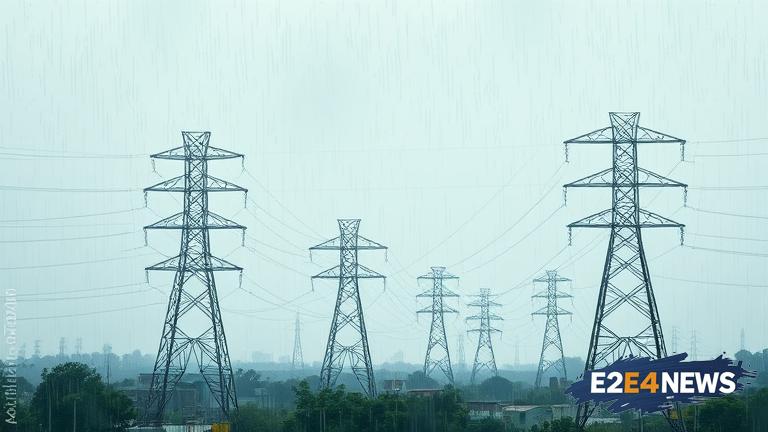A severe downpour in Pakistan has led to a significant disruption in the country’s power supply, resulting in widespread outages that have affected millions of people. The heavy rainfall, which was experienced in various parts of the country, has caused damage to the power infrastructure, leading to a shortage of electricity. The power outages have been reported in several cities, including Karachi, Lahore, and Islamabad, with many areas experiencing prolonged periods without electricity. The situation has been exacerbated by the fact that the power distribution companies were not adequately prepared to handle the situation, leading to a delay in the restoration of power. The government has been criticized for its failure to provide a reliable power supply, with many people taking to social media to express their frustration. The power outages have also had a significant impact on the economy, with many businesses being forced to close temporarily. The agricultural sector has also been affected, with farmers struggling to irrigate their crops due to the lack of electricity. The government has announced plans to invest in the power sector, with the aim of improving the reliability of the power supply. However, many people are skeptical about the government’s ability to deliver on its promises, given its past record. The power outages have also raised concerns about the safety of the power infrastructure, with many people fearing that the situation could lead to accidents. The government has been urged to take immediate action to address the situation, including investing in the power infrastructure and providing support to affected communities. The power outages have also highlighted the need for alternative sources of energy, such as solar and wind power. Many people are now considering investing in alternative energy sources, given the unreliability of the power supply. The situation has also led to an increase in the demand for generators and other backup power systems. The government has been criticized for its failure to promote the use of alternative energy sources, despite the country’s abundant renewable energy resources. The power outages have also had a significant impact on the environment, with many people being forced to use polluting generators and other backup power systems. The government has been urged to take action to promote the use of clean energy sources, in order to reduce the country’s reliance on polluting energy sources. The situation has also highlighted the need for a comprehensive energy policy, one that takes into account the country’s energy needs and promotes the use of alternative energy sources. The government has been urged to consult with stakeholders, including energy experts and civil society organizations, in order to develop a comprehensive energy policy. The power outages have also raised concerns about the government’s ability to manage the country’s energy resources, given the lack of investment in the power sector. The situation has also led to an increase in the cost of living, with many people being forced to spend more on backup power systems and other alternative energy sources. The government has been urged to take action to reduce the cost of living, by promoting the use of alternative energy sources and investing in the power infrastructure.
